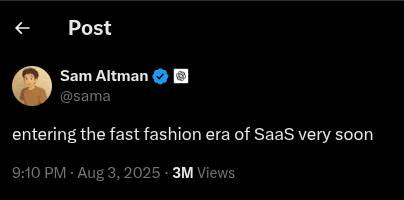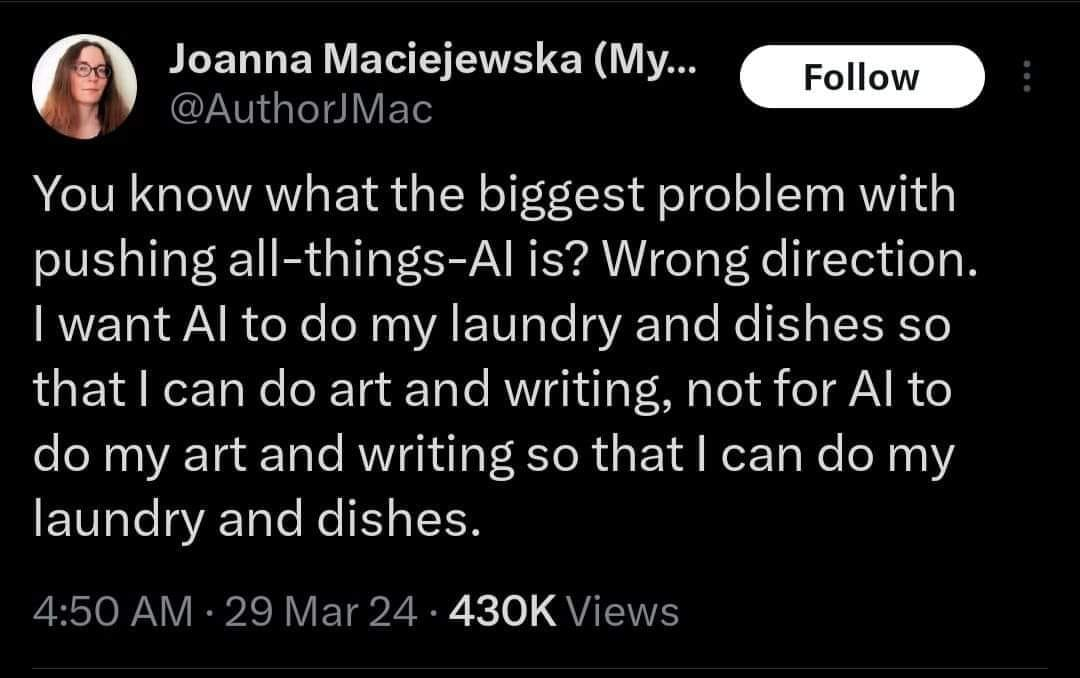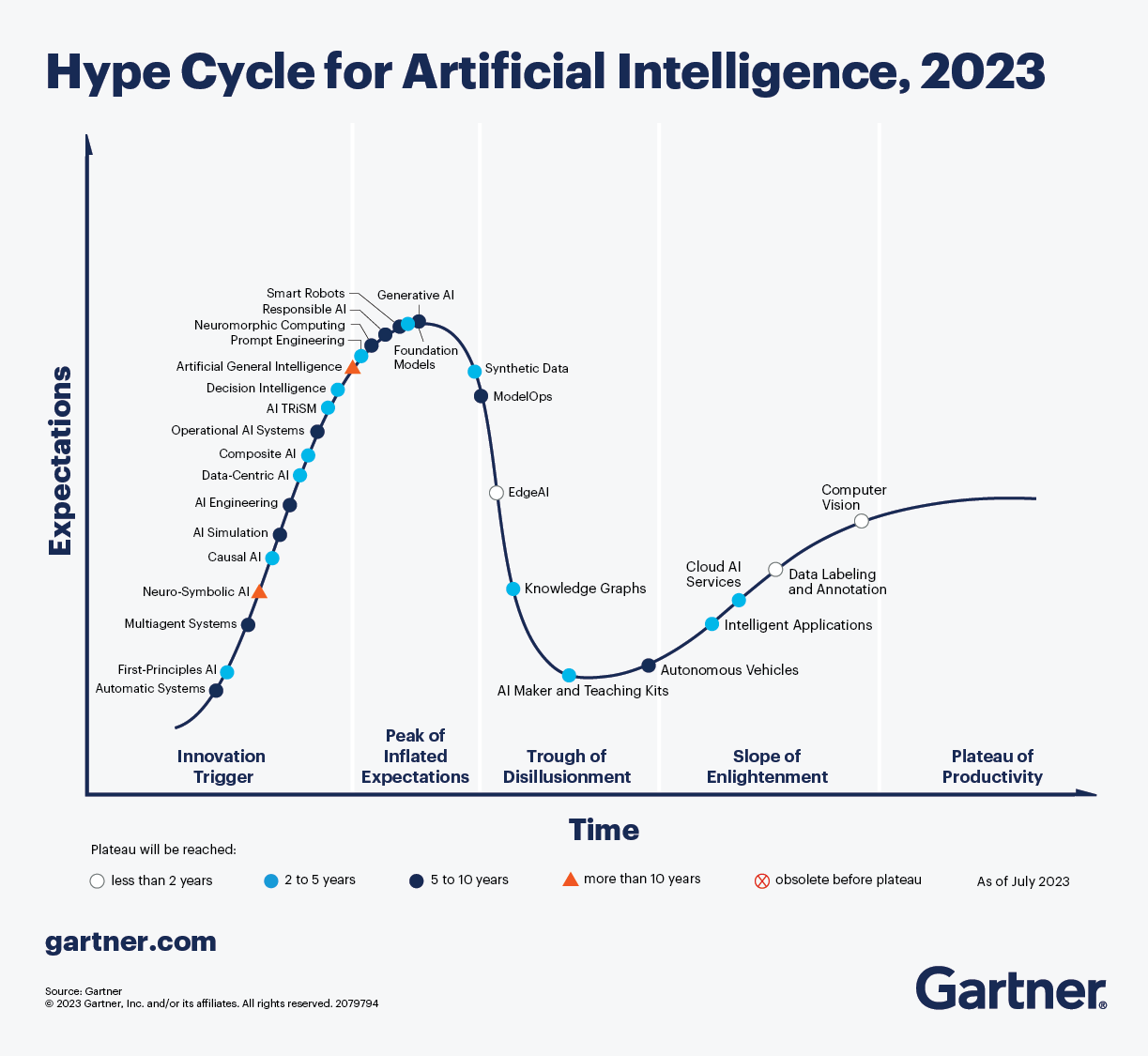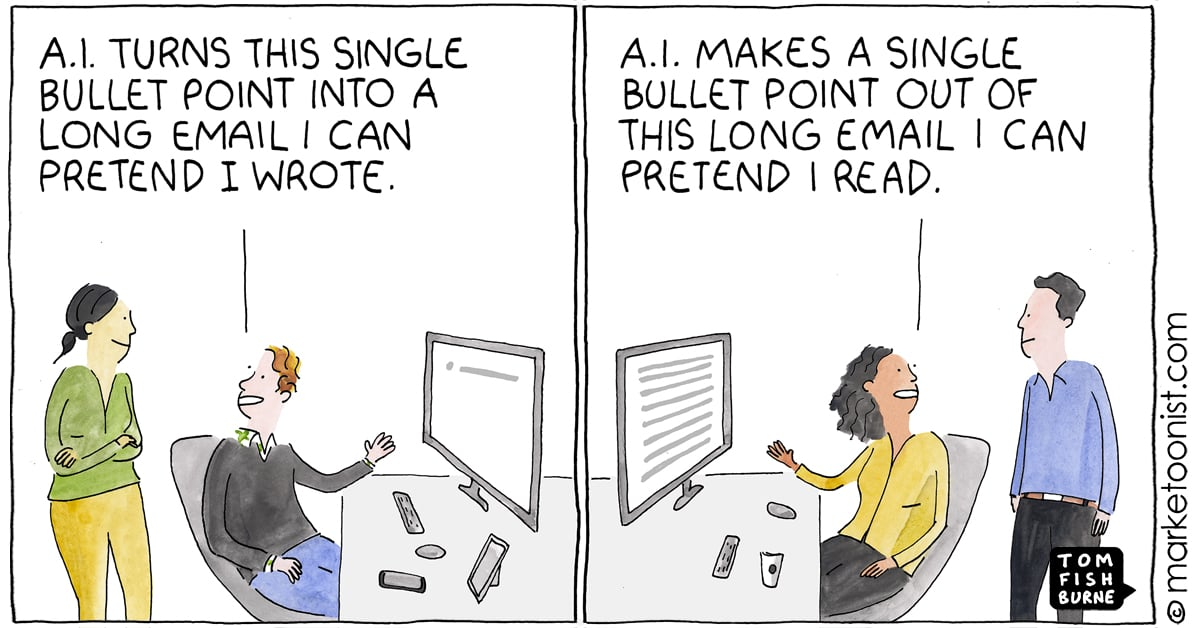Fear of missing out on AI
It has been roughly two years since my last post regarding my experience with the state of AI (Coding with AI) and I think it is about time to talk about this again.
In contrast to my previous post, I don’t want to dwell on specific products and tools, but talk about some points about that I think we should pay close attention to and why this topic is a generally such a mixed bag to me.
Enough chit-chat, let us begin.
The journey so far &
When I look back at the last two years I can probably safely say the whole thing got even more traction, as we’ve left the early adopting phase and AI got a lot of traction.
-
AI has entered the mainstream and almost everything gets AI support.
-
Content is specially prepared for AI systems apparently without following best practices.
-
There is an abundance of new tools and new companies sprout like pop-up stores.
-
There are experiments to replace general human labor and also specific ones like nurses in healthcare.
-
There are promises AI reduces our daily working time.
So in hindsight everything went according to plan from 2023:
Asking the right questions &
I’ve spent a lot of time reading about the general progression of AI and besides dozen of blog posts and other articles for and against AI, also some books to get a broader perspective.
Among these books are following:
I somehow begin to wonder what kind of problems are we trying to address really with AI?
When I I look at the business side I’d say the overall themes are increase of productivity[1] like reducing tiresome and/or manual labor and probably fear of missing out competitive advantage. And on the personal side I mostly see quality-of-life improvements like easy access to information with the help of the natural interfaces like ChatGPT[2] and generational parts to create memes and reels more easily.
This short list is non-exhaustive mind you, but is sufficient for the points I’d like to make next.
Increase of productivity &
Increasing productivity and reducing work time with technology isn’t strictly speaking a new idea, blue collar industrial workers faced this already during the mid-19th century during the industrial age, but for the first time white collar knowledge workers are impacted, and they are probably not backed by any labour union.
There have been lots of riots and protests according to Wikipedia, so apparently the workforce wasn’t all happy with the outcome, but we aren’t there yet, so let us focus on the promise of improved work-life-balance.
Interestingly during that time a strange phenomenon could be observed:
But rather than allowing a massive reduction of working hours to free the world’s population to pursue their own projects, pleasures, visions, and ideas, we have seen the ballooning of not even so much of the ‘service’ sector as of the administrative sector, up to and including the creation of whole new industries like financial services or telemarketing, or the unprecedented expansion of sectors like corporate law, academic and health administration, human resources, and public relations. And these numbers do not even reflect on all those people whose job is to provide administrative, technical, or security support for these industries, or for that matter the whole host of ancillary industries (dog-washers, all-night pizza delivery) that only exist because everyone else is spending so much of their time working in all the other ones. These are what I propose to call ‘bullshit jobs[3]’.
https://davidgraeber.org/articles/on-the-phenomenon-of-bullshit-jobs-a-work-rant
This is just an excerpt of an article written for a magazine under the umbrella of things nobody would print, as the author points out in his book Bullshit Jobs [bullshitjobsbook], but still the term hits a mark. There are a lot more examples and explanations in the book or supposedly bullshit jobs and also jobs that just feel like one, but my key takeaway is the implied question what can our highly skilled workforce do for a living, when their field of expertise has been replaced with automatons and we haven’t reached a moneyless utopia yet?
Hell is a collection of individuals who are spending the bulk of their time working on a task they don’t like and are not especially good at. Say they were hired because they were excellent cabinet-makers, and then discover they are expected to spend a great deal of their time frying fish.
https://davidgraeber.org/articles/on-the-phenomenon-of-bullshit-jobs-a-work-rant
Another issue I see with increasing productivity is the orientation towards throughput or rather output in general in information related topics. Viewed from the business side increasing quantity makes sense to me, this is what the business has been created for in the first place, but is output the only and ulterior goal and the learning how to reach and achieve something can be totally neglected?
Fear of missing out &
If your media feeds are like mine, there is probably something about AI every two or three posts and depending on the type of media, like e.g. LinkedIn, the posts are full of promises and how the full potential of AI can be unlocked to utilize it for your business.
Oftentimes these posts appear to be written with the help of AI and especially em-dashes enjoy increasing popularity. I think eating your own dog food is always advisable, so I see no fault there. On the other hand, I can rarely find some kind of empirical evidence or any other kind of proof for these theses and here I consider this usually as a red flag - skepticism can help.
The current hype and pressure increases and academia has also started looking into the phenomenon of development of fear of missing out on AI. And there is an increasingly number of posts and voices besides the ones from common {aibro][AI Bros] who foretell if you don’t start to use AI today you are going to lose your edge.
| I won’t cite any of these posts, but if you are curious here is a starter: https://kagi.com/search?q=use+ai+or+lose |
Access to information &
Let us start with something positive: AI does a splendid job of lowering the bar to access information! Hallucinations vary between dangerous and hilarious and some people are bold enough to state this is an original feature of LLM design, but with our previous established skepticism regarding media consumption this should be fine.
Delivering probability-based answers to question is only part of the deal, another great application of these models if for content generation and both goes perfectly hand in hand:
I personally think we should just stick to the bullet point list instead of applying a "prosa-2-text" conversion twice, but still I wonder what happens to the quality of the information underneath. Writing this blog post or generally writing is a really time-consuming task. Drafting a new post and trying to fill the intended outline with content is a tasks which helps me personally to pinpoint what I really want to say[4] and I wouldn’t want to miss this journey.
I am a bit afraid the following is more than true:
After all, who are you writing for? Do you care if anybody reads it and how they respond to it? How can you expect anybody to relate to a piece of writing if it was generated by an AI model? If you can’t be bothered to write the entire article, you can’t really expect anybody else to be bothered to read it.
https://www.ben-morris.com/ai-and-the-creeping-enshittification-of-work
Impact on society &
This is probably the most interesting point and I think it is really difficult to imagine the world to come and visionaries like Sam Altman play a big role in it. Still, when money gets involved things are sometimes getting sour and I think one of more recent posts from Altman really condenses the problem down well:

The implied comparison of mass-produced fast fashion with the overgeneralized idea of Software-as-a-Service is interesting by itself, although I think it is not a good one to promote your AI services. For me two of the pain points of fast fashion are the environmental footprint and the exploitation of people in fabric factories and according to media the same is true for the AI industry. There are many reports of the energy requirements of AI and the references to the Mechanical Turk are also increasing:
Amazon using this name [Amazon Mechanical Turk] or their product is surprisingly on the nose: their system also plays the function of hiding the massive amount of labor needed to make any modern AI infrastructure work. ImageNet, during its development in the late 2000s, was the largest single project hosted on the MTurk platform, according to Li. It took two and a half years and nearly 50,000 workers across 167 countries to create the dataset. In the end, the data contained over 14 million images, labeled across 22,000 categories.
I think the real point he wanted to make is with the help of AI can cheap software be mass-produced instead of paying monthly fees to service providers or individual solutions to problems. And this works actually well with software, since there is a negligible impact on the environment in contrast to physical products.
Conclusion &
Currently I am not exactly sure where we are on the hype cycle from the beginning of this post and I hope the next few months and years will surely show a direction there. We are going to see if history repeats itself in the protests of workers and if the dystopian outlooks of the movie Idiocracy stay a work of fiction.
I think my personal usage of AI won’t sky rocket any time soon, since I am most of the time interested in discovering how and why something can be done and rarely just in a fast solution. Given the situation that I am interested in exactly that and I don’t plan on using it beyond this narrow scope I might ask AI would still write it myself.
For any other stuff that can readily be automated I totally agree to this:

Bibliography &
-
[tamingsiliconvalleybook] Gary F. Marcus, Taming Silicon Valley: How We Can Ensure That AI Works for Us, The MIT Press 2024
-
[theaiconbook] Emily M. Bender, Alex Hanna, The AI Con: How to Fight Big Tech’s Hype and Create the Future We Want, Harper 2025
-
[searchesbook] Vauhini Vara, Searches: Selfhood in the Digital Age, Random House 2025
-
[stupidityparadoxbook] Mats Alvesson, André Spicer, The Stupidity Paradox: The Power and Pitfalls of Function Stupidity at Work, Profile Books 2016
-
[bullshitjobsbook] David Graeber, Bullshit Jobs: A Theory, Simon & Schuster 2019

